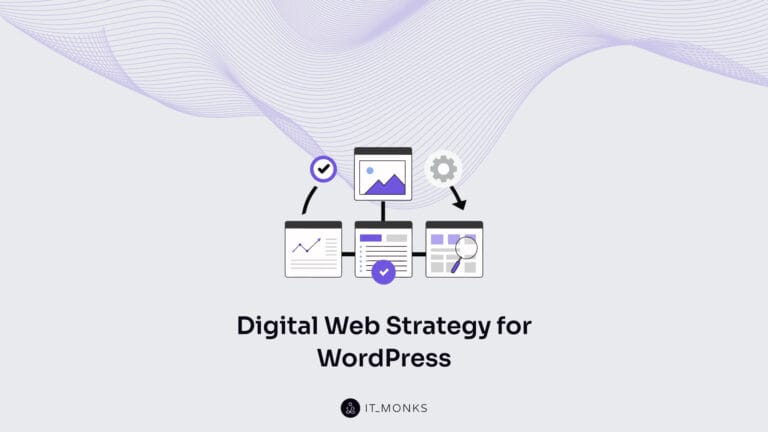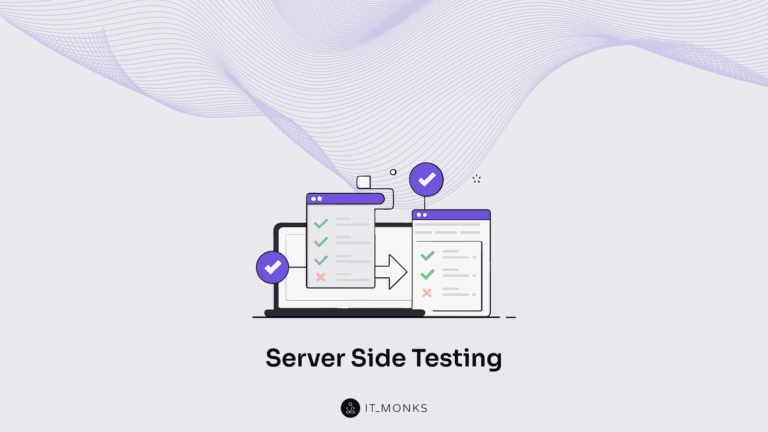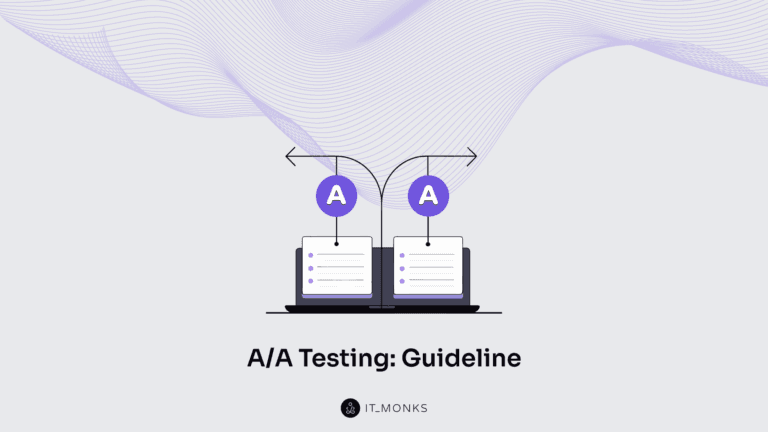Machine Learning for Ecommerce
Table of Contents

Machine learning (ML) is revolutionizing industries across the globe, from healthcare to finance, and ecommerce is no exception. By analyzing vast amounts of data, machine learning can automate decision-making processes, predict customer behavior, and optimize business operations, providing a competitive edge. For ecommerce, it’s no longer just an interesting feature; it has become a fundamental tool for staying relevant in a fast-evolving digital landscape. As more businesses adopt machine learning (the ML market is anticipated to reach $117.19 billion by 2027, according to GlobeNewswire), those who don’t risk falling behind and losing market share. What should you know about using machine learning in ecommerce? What are the benefits of using artificial intelligence and deep learning in ecommerce? Let’s discuss ecommerce machine learning projects and their fundamentals in detail.
What is Machine Learning?
Machine learning is a branch of artificial intelligence that allows systems to learn from data and improve performance without being explicitly programmed. At its core, machine learning algorithms use data to recognize patterns, make predictions, run tests, analyze search, personalize customer experience and automate tasks.
There are three main types of ecommerce machine learning models:
- Supervised learning: In this method, the system is trained on labeled datasets, learning to predict outcomes based on input data. For example, it might predict customers’ product preferences based on past purchases or search history.
- Unsupervised learning: The algorithm works with unlabeled data, identifying hidden structures or patterns. In ecommerce, this can be used for discovering customers’ segments or spotting trends in user behavior.
- Reinforcement learning: This model improves by interacting with its environment and learning from feedback. In ecommerce marketing, reinforcement learning can be applied to optimize dynamic pricing strategies or improve search algorithms.
Machine learning in ecommerce functions by continuously analyzing and processing data, allowing businesses to respond to customer needs, streamline operations, and predict future trends based on customer behavior and search patterns more effectively than ever.
Key Applications of Machine Learning in Ecommerce
Machine learning has transformed how ecommerce businesses operate by enabling smarter, data-driven decisions. By leveraging vast amounts of user data, ecommerce platforms can provide personalized experiences to customers, optimize processes, and improve overall efficiency. Here are the key applications of machine learning in ecommerce.
Personalized Recommendations
Personalized recommendations are one of the most effective applications of ML in ecommerce. By analyzing user behavior, preferences, purchase and search history, machine learning algorithms can predict what products a customer is likely to be interested in based on the users’ past experience. These algorithms utilize techniques such as collaborative filtering, which looks at the behavior of similar users, and content-based filtering, which analyzes product attributes and user preferences.
For instance, platforms like Amazon and Netflix employ sophisticated recommendation engines to enhance user experience. Machine learning in the marketplace considers various factors, including past purchases, items browsed, and user ratings, to suggest products tailored to individual preferences.
Similarly, Netflix analyzes viewing habits and ratings to recommend movies and TV shows that align with a user’s tastes and search history. These personalized experiences not only increase customer satisfaction but also drive higher sales conversion rates, as customers are more likely to purchase items that are relevant to them.
Customer Segmentation
Customer segmentation is another powerful use of machine learning, allowing businesses to categorize customers into distinct groups based on various attributes such as browsing and search behavior, demographics, and purchase history. By analyzing patterns within the data and running tests, machine learning algorithms can identify specific segments, such as high-value customers, occasional buyers, or customers likely to churn.
This segmentation enables targeted marketing strategies, allowing businesses to tailor their communications and offers to different customer groups. For example, a retailer might offer personalized discounts to high-value customers or targeted marketing campaigns for specific demographic groups. By enhancing personalization, companies can improve user experiences, drive customer loyalty, and increase sales through more relevant messaging.
Dynamic Pricing
Dynamic pricing leverages machine learning to adjust prices in real-time based on various factors, including demand, competition, and customer behavior. This model allows businesses to optimize sales and profits by ensuring that prices reflect current market conditions.
For example, airlines and ride-sharing companies often use dynamic pricing to adjust fares based on demand fluctuations. During peak times, prices may increase, while discounts might be offered during off-peak hours to encourage sales. By using machine learning algorithms to analyze vast amounts of data, businesses can make informed pricing decisions that respond quickly to changes in the market.
Inventory Management
Effective inventory management is crucial for ecommerce businesses, and machine learning plays a vital role in optimizing stock levels and reducing waste. By utilizing predictive analytics, businesses can forecast demand more accurately, allowing them to stock the right quantities of products at the right times.
Ecommerce machine learning models analyze historical sales data, seasonality, and market trends to predict future demand. This insight helps businesses minimize excess inventory and avoid stockouts, leading to improved cash flow and customer satisfaction. Additionally, by understanding purchasing patterns, companies can make more informed decisions about restocking and discontinuing products.
Fraud Detection
Fraud detection is an area where machine learning excels. Ecommerce companies face constant threats from fraudulent transactions. Online payment fraud detection using machine learning helps identify and mitigate these risks. By analyzing transaction data in real-time, machine learning models can detect anomalies and flag potentially fraudulent activities.
Techniques such as supervised learning can be employed, where the model is trained on historical transaction data labeled as either fraudulent or legitimate. This enables the algorithm to learn patterns associated with fraud and apply that knowledge to new transactions. By implementing machine learning for fraud detection, businesses can significantly reduce financial losses and protect their customers’ information.
Customer Churn Prediction
Customer churn prediction involves using machine learning to identify patterns that indicate when customers will likely stop engaging with a business. Machine learning models can predict which customers are at risk of leaving by analyzing various factors such as purchasing behavior, customer interactions, and feedback. For instance, by analyzing historical data, these models can pinpoint warning signs, such as a decline in purchase frequency, reduced engagement with marketing communications, or negative customer feedback.
Common techniques used in churn prediction include classification algorithms, such as logistic regression, decision trees, and random forests. These models classify customers into two categories: those likely to churn and those expected to remain loyal. Features such as transaction history, customer demographics, interaction history, and even social media activity can be used to train these models.
Once at-risk customers are identified, businesses can implement targeted retention strategies. For example, they may offer personalized discounts, enhance customer support interactions, or create loyalty programs to re-engage customers. Companies can effectively leverage machine learning for churn prediction to reduce attrition rates, maintain customer loyalty, and improve their bottom line.
Customer Lifetime Value Prediction
Predicting customer lifetime value (CLV) is a critical metric for businesses, as it estimates the total revenue a company can expect from a customer over the entire duration of their relationship. Machine learning provides sophisticated methods for calculating and predicting CLV, allowing businesses to make informed decisions about customer acquisition and retention strategies.
One common approach to calculating CLV involves analyzing historical purchase data to understand how long customers typically stay with a brand and how much they spend over that period. Machine learning models can incorporate various factors, such as average order value, purchase frequency, and customer retention rates, to provide more accurate CLV forecasts.
Predictive models, such as regression analysis and time series forecasting, can also account for changes in customer behavior over time. For example, businesses may analyze seasonal purchasing patterns or shifts in customer preferences to refine their CLV predictions.
The insights gained from CLV predictions are invaluable for shaping marketing strategies and customer relationship management efforts (like WooCommerce customer management). By identifying high-value customers, businesses can tailor their marketing campaigns to focus on acquiring similar clients. Additionally, understanding the lifetime value of different customer segments can help organizations allocate resources more efficiently, enhancing their return on investment (ROI) for marketing initiatives.
Purchase Prediction
Purchase prediction refers to the ability of machine learning algorithms to forecast future buying behavior based on historical data and customer interactions. This predictive capability is essential for ecommerce businesses, as it allows them to anticipate customer needs and optimize inventory and marketing strategies accordingly.
Machine learning models for purchase prediction analyze a variety of data points, including past purchase history, browsing behavior, demographic information, and seasonal trends. Techniques such as collaborative filtering and neural networks are often employed to identify patterns that correlate with purchasing decisions.
For instance, a model might learn that customers who previously bought certain products will likely purchase complementary items. By recognizing these relationships, businesses can create targeted marketing campaigns that encourage repeat purchases and cross-selling opportunities.
Accurate purchase predictions enable companies to optimize their inventory management. By forecasting which products are likely to be in demand, businesses can ensure they have adequate stock levels, minimizing the risk of stockouts and reducing excess inventory. Furthermore, these insights can inform promotional strategies, helping companies time their marketing efforts to align with predicted purchasing spikes.
Benefits of Machine Learning for Ecommerce Businesses

The integration of machine learning (ML) into ecommerce offers numerous advantages, driving both short- and long-term business success. From enhancing customer interactions to optimizing operations, ML can significantly transform how businesses function and compete in the marketplace. Here are the key benefits of using machine learning in the marketplace and other ecommerce businesses.
Enhanced Customer Experience
One of the most powerful impacts of ML in ecommerce is its ability to create a highly personalized shopping experience. By analyzing user data, machine learning can deliver tailored recommendations, targeted marketing, and relevant content based on individual preferences. This level of personalization improves customer satisfaction and encourages repeat purchases, creating more meaningful engagement and loyalty.
Increased Sales and Conversion Rates
Machine learning-driven insights can significantly boost sales by helping ecommerce businesses make better decisions and improve search. Algorithms analyze customer behavior and sales patterns to optimize product recommendations, pricing strategies, and marketing efforts. This leads to more informed decisions, resulting in higher conversion rates and increased revenue. For instance, personalized product suggestions and dynamic pricing models help businesses maximize profit margins while offering relevant deals to customers when they use your store’s search.
Operational Efficiency
Machine learning can streamline various ecommerce processes, from inventory management to logistics. By automating time-consuming tasks and optimizing resource allocation, businesses can reduce operational costs and minimize human error. Predictive analytics also allow companies to plan more efficiently, ensuring that inventory is managed accurately and that customer demand is met without overstocking. Overall, ML improves resource utilization and reduces wastage, making operations more efficient.
Improved Security
Security is a critical concern for any ecommerce business, especially with the rise of online fraud. Ecommerce ML enhances security by detecting potential threats in real-time. Advanced ML algorithms monitor transactions for unusual activity, such as atypical purchase patterns or inconsistencies in payment information, which could indicate fraudulent behavior. This helps businesses prevent fraud before it impacts their operations, ensuring a safer shopping experience for customers.
Challenges and Considerations

While the benefits of using artificial intelligence and deep learning in ecommerce are compelling, businesses must also navigate several challenges and considerations. Understanding these issues is crucial for successful implementation and sustainable growth.
Data Privacy Concerns
As machine learning relies heavily on data, privacy concerns are paramount. Ecommerce businesses must adhere to strict data protection regulations, such as WooCommerce GDPR and CCPA, to ensure that customer data is collected, stored, and processed ethically. Customers are increasingly aware of their privacy rights, making transparency and consent vital in data practices. Companies must implement robust data protection measures and be prepared to handle potential breaches, as the consequences of failing to safeguard customer information can be severe, including legal ramifications and loss of trust.
Implementation Complexity
Integrating machine learning into existing systems can be complex and challenging. Businesses often face technical hurdles, such as data integration, system compatibility, and algorithm selection. Additionally, organizations need to align their machine learning initiatives with their overall business strategy, which can require significant time and effort. Companies may also need to invest in new technologies or platforms, and ensure that their staff are adequately trained to utilize these systems effectively.
Cost and Resources
Implementing ecommerce ML can be resource-intensive, requiring a substantial budget for technology, infrastructure, and skilled personnel. Businesses must consider the costs associated with data storage, processing power, and software development. Moreover, hiring or training employees with expertise in machine learning and data science is crucial for successful deployment. Companies need to assess whether the potential returns on investment justify these costs, particularly for small to mid-sized businesses with limited resources.
Conclusion
By using machine learning in ecommerce, businesses can benefit from multiple advantages such as enhanced customer experiences, increased sales, and improved operational efficiency. However, companies must carefully consider the challenges associated with data privacy, implementation complexity, and resource allocation. By addressing these issues proactively, ecommerce companies can harness the power of machine learning to stay competitive and meet the evolving demands of their customers. As the landscape continues to evolve, those who embrace ecommerce ML will now position themselves for long-term success in the digital marketplace.
Is your business ready to adopt machine learning? For the IT Monks team, the sky is the limit. We are always happy to implement every idea you have in your mind. Whether you want to adopt machine learning in ecommerce, use AI for better search, or launch ecommerce machine learning projects of your own, do not hesitate to contact us!
Contact
Don't like forms?
Shoot us an email at [email protected]




